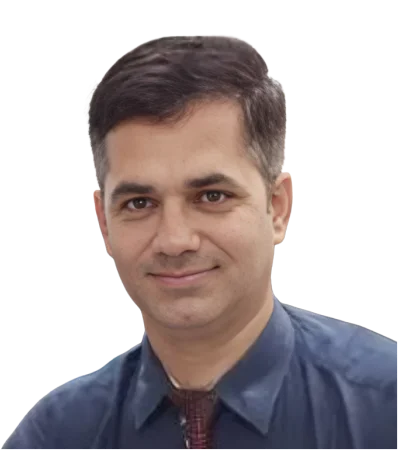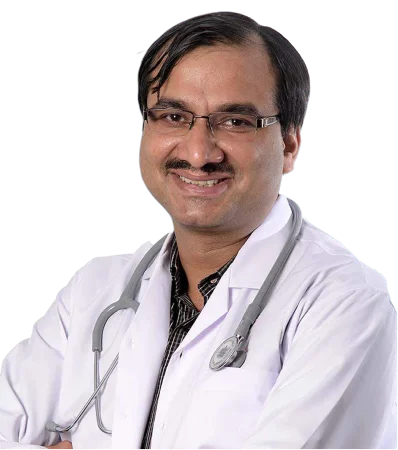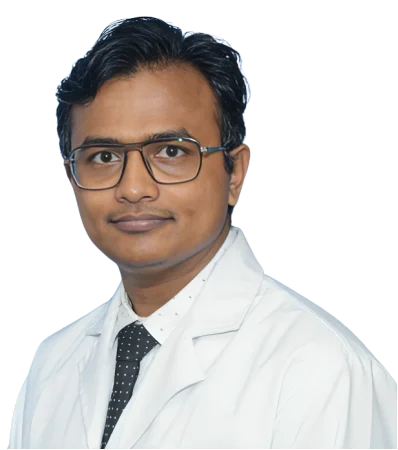ACL Reconstruction Surgery
ACL Tears to Restore Mobility and Prevent Future Injuries
ACL (Anterior Cruciate Ligament) reconstruction surgery is a standard and extremely effective method of fixing injuries or tears to the ACL, which is the vital ligament that supports the knee. In Chirayu Super Speciality Hospital, we offer skilled ACL reconstruction with advanced procedures and top-of-the-line equipment. Our aim is to improve knee stability, alleviate discomfort and allow patients to resume their regular activities, be it working, sports or their daily routine.
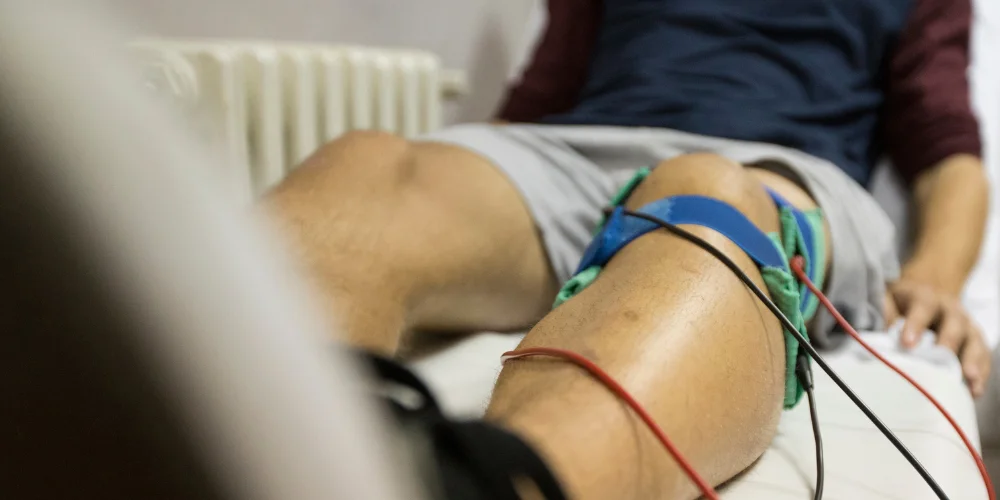
What is ACL Reconstruction Surgery?
ACL reconstruction surgery replaces the torn ligament of the knee using an graft that is usually obtained from the patient’s bodily tissue (autograft) or from a donation (allograft). This procedure is required in cases where the ACL is damaged and unable to heal itself usually due to injuries from sports and accidents or sudden twisting movements. The procedure assists in restoring the knee’s strength and stability and prevent further injury to the knee joint.
Who Performs Your Surgery
In Chirayu Super Speciality Hospital, ACL reconstruction surgery is carried out by orthopedic surgeons who are highly trained that specialize in knee and sports medicine injuries. The team of surgeons we employ has vast experience with ACL reconstructions using minimally invasive techniques to guarantee a precise repair and speedier recovery. We collaborate closely with each patient to design a treatment plan that will meet the individual requirements and objectives.
Types of ACL Reconstruction Surgery
- Autograft ACL Reconstruction : The graft is taken from the patient’s own body, usually from the patellar tendon, hamstring tendon, or quadriceps tendon. This method is commonly used due to its high success rate and compatibility.
- Allograft ACL Reconstruction : The graft is sourced from a donor. This option may be suitable for patients who prefer not to use their own tissue or for those undergoing revision surgeries.
- Synthetic Graft ACL Reconstruction : Although less common, synthetic grafts may be used in some cases where biological grafts are not suitable.
Symptoms Indicating Need for ACL Reconstruction
Signs that indicate the necessity for ACL reconstruction surgery are an audible pop when injury occurs or injury, extreme swelling, pain and instability, causing the knee to move or thigh, trouble bearing weight and loss of the full movement. If these signs persist in the following time, particularly after an athletic incident or injury, it’s important to seek medical attention.
Diagnosis for ACL Reconstruction Surgery
The diagnosis is based on an extensive physical examination of the knee as well as imaging studies like MRI or X-rays. These tests can help determine the severity that the ACL tear, and also determine any damage caused by the tear to knee structures, like cartilage or ligaments. An accurate diagnosis is vital for determining the best treatment plan.
Treatment Process
ACL reconstruction usually begins with a general or regional anesthesia to ensure patient ease of movement. The surgeon creates small cuts around the knee and utilizes the arthroscope (a tiny camera) to direct the procedure. The ruptured ACL is then removed, and the graft chosen is prepared and placed to replace the ligament that has been damaged. The graft is then secured using screws or other fixing devices. After you have the new ACL is installed the incisions are then closed as well as the knee then bandaged. The procedure typically takes one to two hours.
Care and Recovery After Surgery
The recovery process following ACL reconstruction surgery involves rest and compression. Icing, compression as well as elevation (RICE) to lessen swelling. Physical therapy is a vital part of rehabilitation, with a focus on restoring motion, strengthening muscles and then gradually returning to normal activities. The majority of patients return to normal activities in some weeks, but complete recovery and returning to vigorous activities or sports could take anywhere from 6 to 12 months, contingent on the progress of each patient.
Advantages of Choosing Our Surgery Services
Sports Medicine Specialists
Expert orthopedic surgeons specializing in ACL repair and reconstruction using the latest techniques.
Minimally Invasive Surgery
Arthroscopic ACL reconstruction to reduce scarring and speed up recovery.
Customized Rehabilitation Programs
Comprehensive rehab plans focused on restoring knee strength, stability, and function.
What Our Patients Say
Read about our patients positive experiences and how Chirayu Super Speciality Hospital has positively impacted their health and well-being.


The recovery process was smoother than I expected. I’m back on the track, thanks to the team at Chirayu.


The results of my ACL reconstruction are amazing. I’m back to my daily routine without any limitations.


Thanks to the minimally invasive surgery at Chirayu, my recovery was quick and almost painless. I’m walking comfortably again.

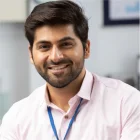
After my ACL reconstruction at Chirayu, I’m back to playing football without any pain or instability. The surgery was a success!
Meet Our Medical Specialists
Our experienced orthopedic surgeons specialize in ACL reconstruction, providing advanced care to restore knee stability and function.
Frequently Asked Questions
Here, we provide answers to some of the most commonly asked questions to help you better understand about our surgery services. If you have any additional questions, please do not hesitate to contact us.
Risks include infection, blood clots, bleeding, graft failure, and stiffness. Surgeons at Chirayu minimize these risks with advanced techniques.
The procedure uses an arthroscope to remove the damaged ACL and replace it with a graft, secured with screws or devices.
Surgery is recommended when the ACL is torn and the knee is unstable, especially for active individuals or athletes.
ACL reconstruction surgery involves replacing a torn anterior cruciate ligament in the knee with a graft to restore stability.
The surgery typically lasts 1 to 2 hours, depending on the complexity and the surgeon’s approach.
